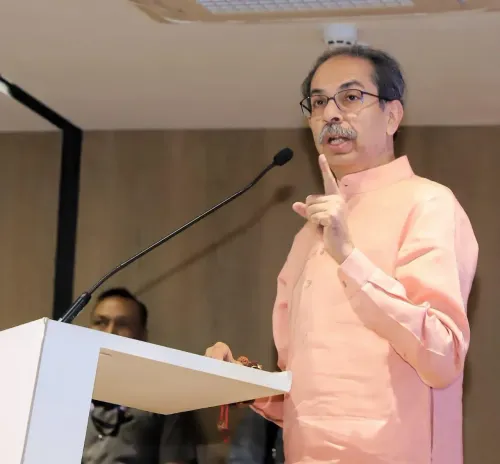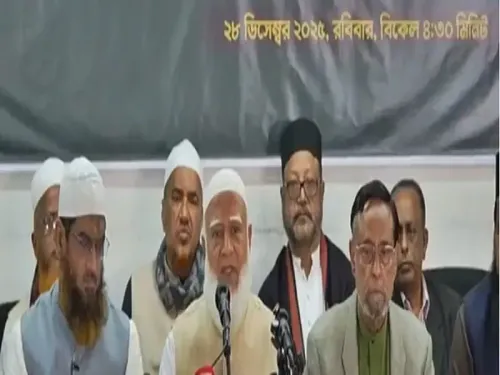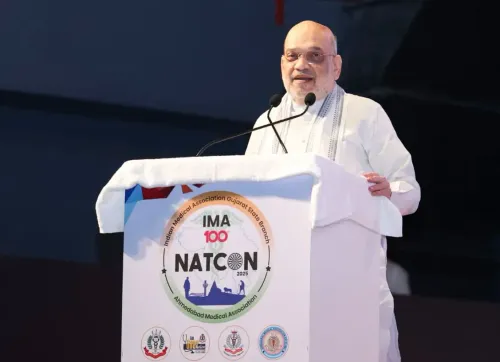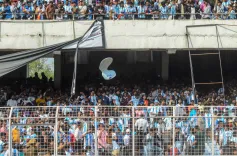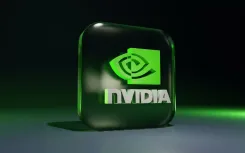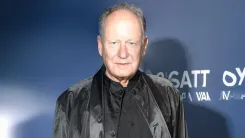Why is Jamaat-e-Islami Struggling to Regain Political Party Status in Bangladesh?
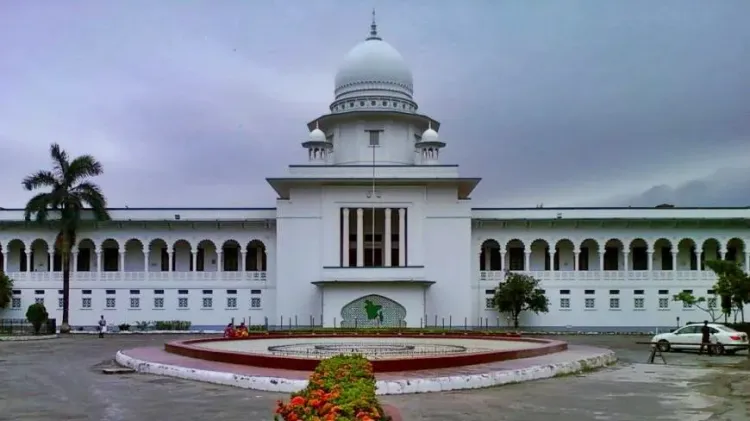
Synopsis
Key Takeaways
- Supreme Court's ruling marks a historic moment in Bangladesh's political landscape.
- The Election Commission has paused actions regarding Jamaat's registration.
- Jamaat's appeal was dismissed due to the absence of legal representation.
- The interim government has lifted the ban on Jamaat and its affiliates.
- The political future of Jamaat remains uncertain as it seeks legal recourse.
Dhaka, May 13 (NationPress) In a significant setback for the radical Islamist party of Bangladesh, Jamaat-e-Islami, Chief Justice of the Supreme Court Syed Refaat Ahmed remarked on Tuesday that this marks the first occurrence in the nation's history where a political party's registration was annulled via a High Court ruling.
These comments were delivered during the review of Jamaat-e-Islami's petition by the complete appellate division bench of seven members, led by Chief Justice Syed Refaat Ahmed.
The Islamist party has filed an appeal to restore its registration as a political entity and its electoral symbol, as reported by local media.
Tawhidul Islam, representing the Election Commission (EC) in the proceedings, mentioned that the EC has been hesitant since the High Court's intervention regarding Jamaat's registration and is currently awaiting the Appellate Division's verdict on the matter.
He also informed the court that following the Supreme Court's administrative decision, the EC removed Jamaat's electoral symbol, the scales, and if the party wishes to obtain a new symbol, it must submit a fresh application.
Meanwhile, the Appellate Division of the Supreme Court postponed the hearing until May 14, as reported by the leading Bangladeshi daily, The Dhaka Tribune.
In August 2013, the High Court deemed Jamaat's political party registration illegal and void by dismissing a writ petition. Subsequently, in December 2018, the EC officially revoked the party's registration through a gazette notification.
Jamaat subsequently appealed against the High Court's ruling, but in November 2023, the Appellate Division, presided over by then Chief Justice Obaidul Hassan, dismissed Jamaat's appeal due to the absence of the party's principal lawyer during the hearing.
Consequently, the High Court's ruling declaring Jamaat's registration as an illegal political party remained intact.
After the downfall of the Awami League Government, led by Sheikh Hasina, during a violent mass uprising last year, Jamaat-e-Islami submitted a petition to revive its appeal to restore its canceled political party registration.
In October, the Appellate Division of the Supreme Court accepted Jamaat-e-Islami's request for the reinstatement of its registration as a political party.
Since then, Jamaat has pursued legal avenues to recover its party registration and electoral symbol, as indicated by local media reports.
Reports also suggest that on August 1 of last year, the preceding Awami League-led government prohibited Jamaat, its student faction, Islami Chhatra Shibir, and all associated organizations as political entities under the Anti-Terrorism Act of 2009.
However, the interim government led by Muhammad Yunus, upon taking office, lifted the ban on Jamaat-e-Islami and its student wing, issuing a gazette notification.
These radical forces previously collaborated with student leaders and Yunus to overthrow the democratically elected Awami League government.


